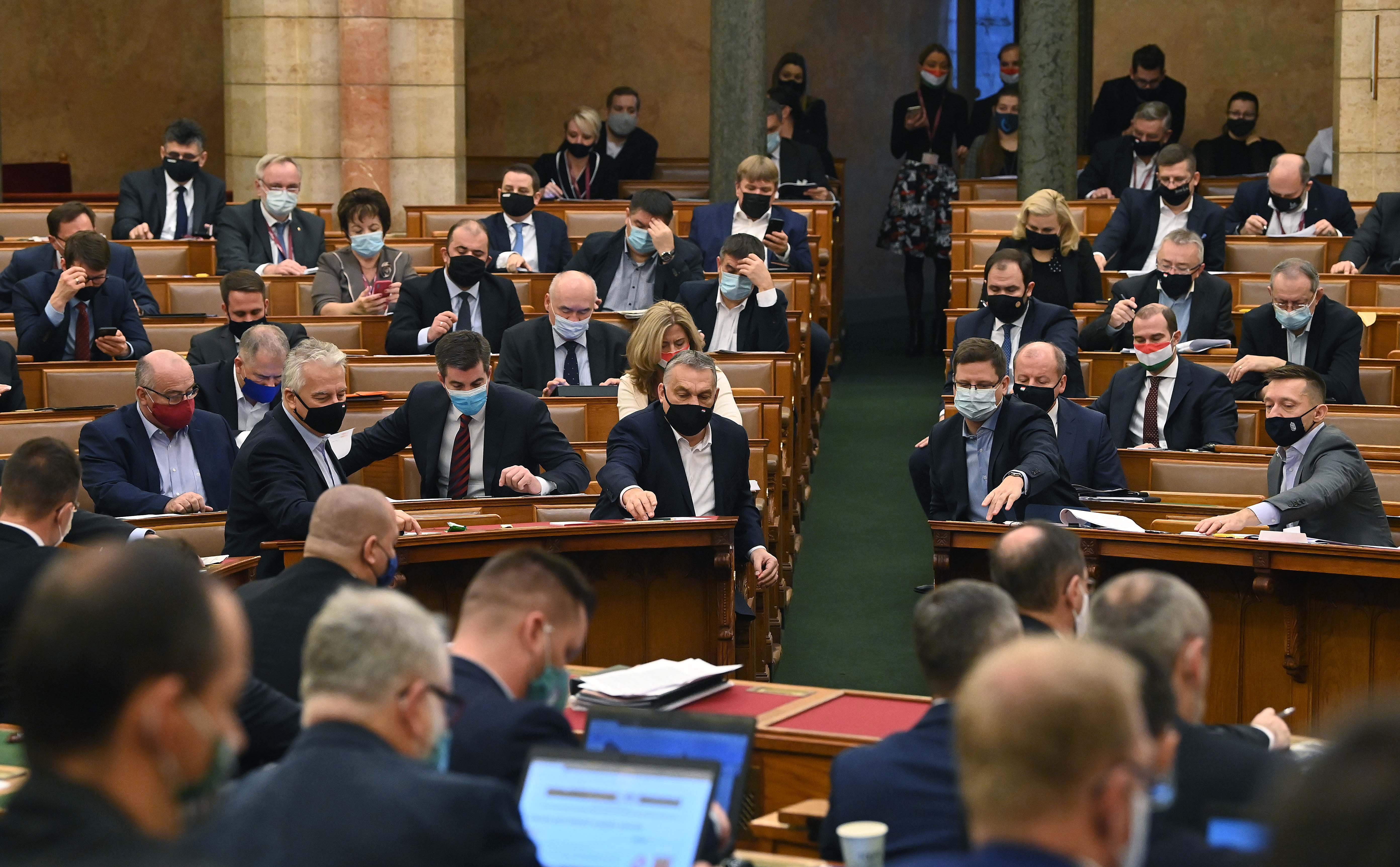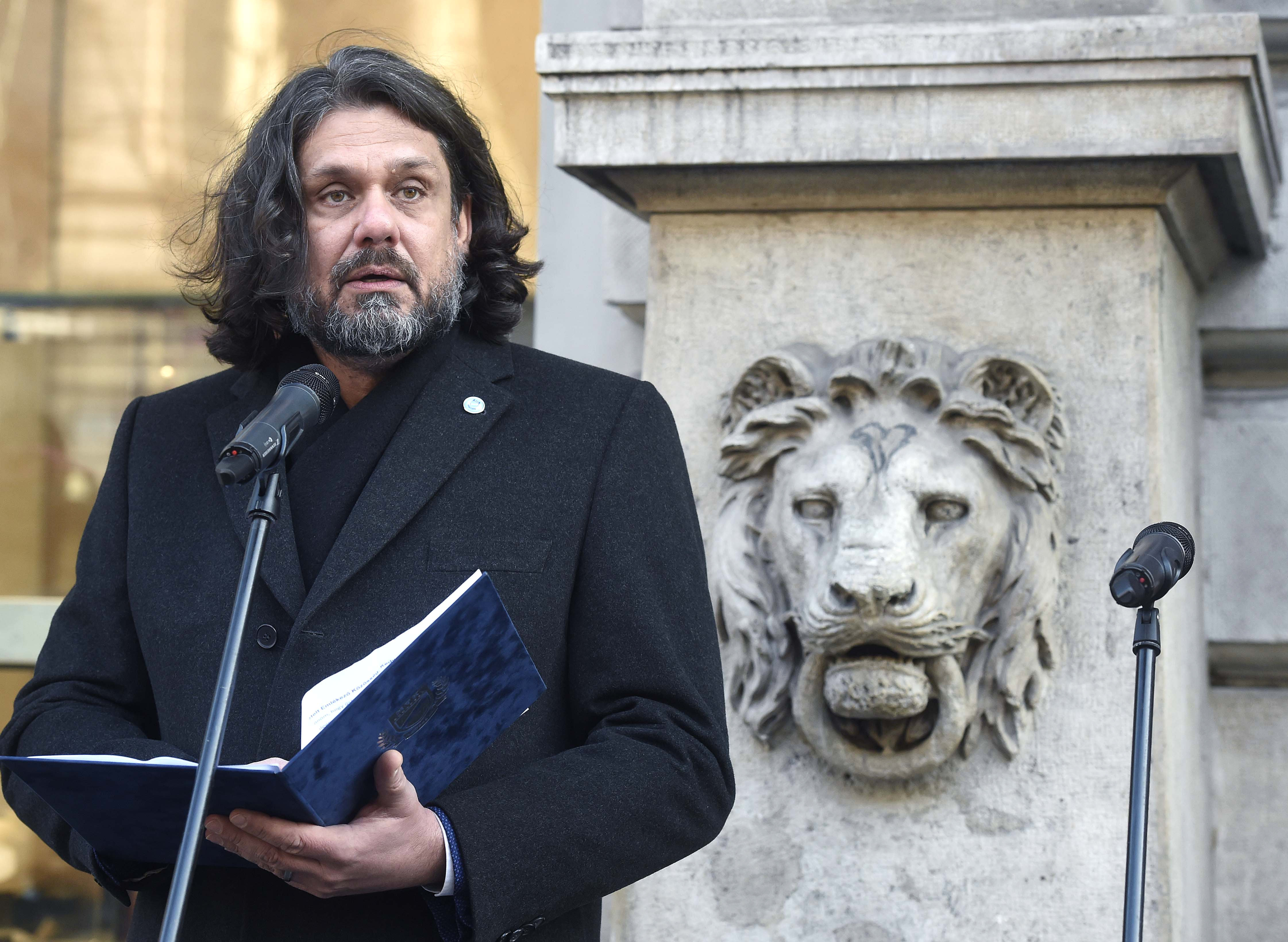Hungary's minister for families tells women not to expect the same salaries as men
- Stay updated on the latest news from Hungary by signing up for the free InsightHungary newsletter:
Women should not believe they must compete with men for equal positions or equal pay, according to a video featuring family affairs minister Katalin Novák released Monday on the website Axióm.
In the video, titled "How can a woman be successful?", Novák instructs women what not to do:
"Don't believe that we women must always compete with men. Don't believe that at every moment of our lives we must compare ourselves to others, and have at least the same positions and level of salaries as others."
In 2019 in Hungary, the average salary for women was around 15 percent less than for men.
Novák, who in September was named minister without portfolio for family affairs, is tasked with pushing Fidesz's conservative family policy, including efforts to increase Hungary's birth and marriage rates and so-called "family protection" measures that restrict the rights of LGBTQ individuals.
In the video, Novák says that women should not believe they must choose between having children and engaging in "serious professional work," or that they cannot be fulfilled as a "mother of many children."
The minister praised women's abilities to "bear the burdens of others," and encouraged female viewers to "dare to take responsible decisions," "not give up our privileges in a misinterpreted struggle for emancipation,” and to experience "the beauty and opportunities that arise from the harmony of differences between men and women." (Here the video depicts a man handing an item to a woman from a tall shelf she cannot reach.)
"We should be glad we were born women, that we can give life, and that we were given the beauty of love and caring for others," Novák said.
After the video drew criticism, Novák appeared Tuesday on HirTV where she claimed her words had been "deliberately twisted and distorted," and denied that she believes women should be satisfied if they receive lower salaries than their male counterparts.
Constitutional amendment bans gay adoption
The Fidesz-KDNP supermajority in Parliament passed an amendment to Hungary's constitution on Tuesday effectively barring same-sex couples from adopting children, and other bills were passed that alter the definition of public funds and change election law to disadvantage opposition parties.
The constitutional amendment, which passed with 134 yes votes, 45 no votes and five abstentions, adds language that alters the legal definition of the family. The vote was boycotted by Democratic Coalition MPs in protest.
"The basis of the family is marriage and the parent-child relationship. The mother is a woman and the father is a man," the constitution now reads following its ninth amendment since its 2012 adoption by the Fidesz-KDNP supermajority.
Since same-sex marriage has been constitutionally prohibited in Hungary since 2012, the amendment coupled with a separate law passed Tuesday which stipulates that only married couples may adopt children effectively prohibits same-sex couples from doing so.
Dávid Vig, director of rights group Amnesty Hungary, said the decisions represented "a dark day for human rights."
Another change enshrines a religious conservative conception of gender, and endows the state with the responsibility of instilling national and Christian values in children. It reads, "Hungary protects the right of children to self-identity according to their sex at birth and provides an upbringing in accordance with the values based on Hungary's constitutional identity and Christian culture.”
Other legislation passed Tuesday changes the definition of public funds, allowing for public foundations run by government allies to avoid scrutiny over their use of public money. Public endowments given to foundations set up by the government may now lose their legal status as public funds, allowing such foundations, many of which are run by ruling party figures and their allies, to use public money as they please without accountability to taxpayers or public scrutiny.
The law also requires a two-thirds vote in Parliament to create, liquidate or change the operation or staffing composition of any such public foundations, ensuring that in the case of a change of government, existing foundations run by Fidesz-connected actors would retain control of their assets and leaders.
A change to election law was also approved Tuesday which will increase the burden on parties that wish to field their own national voting lists. The government has argued that the changes are necessary to prevent fake parties from abusing campaign funds provided by the state, but critics have accused Fidesz of attempting to tilt the scales in its own favor in 2022 national elections.
Read more about the new legislation here.
EPP declines to expel Deutsch after gestapo comments
The European People's Party's caucus in the European Parliament met on Wednesday to discuss the possible expulsion of Tamás Deutsch, the head of Fidesz's EP delegation, after he made comments comparing EPP leader Manfred Weber to the gestapo and Hungary's communist-era secret police.
The EPP voted 133-6 to strip Deutsch of his rights to speaking time in plenary sessions, and to remove him from any positions within or on behalf of the EPP Group. Deutsch will retain his membership in the EPP despite a call by more than 30 EPP MEPs from 12 countries demanding his expulsion.
In an official statement adopted Wednesday, the EPP emphasized that the rule of law "lies at the heart" of the group, and called the rule of law mechanism built into the latest EU budget "an historic agreement that we all should be proud of." Hungary and Poland held up passage of the €1.8 trillion budget and economic recovery package over their staunch opposition to the rule of law provisions.
The statement condemned comments Deutsch made in two interviews in November where he said a statement by EPP leader Weber was reminiscent of the gestapo and ÁVÓ, Hungary's communist-era secret police. Deutsch apologized repeatedly for the comments, but the EPP's statement said they were "in clear contradiction to European Christian Democracy and to EPP values," and that "such behavior has no place in our family."
The group slammed Fidesz for violating EU values, including European integration, the rule of law, judicial independence, free media, support of civil society, protection of human rights and protection of all minorities. The statement called on Fidesz to reflect on whether its values are still compatible with the EPP Group, and called on the EPP's party to make a decision on Fidesz's membership as soon as pandemic conditions allow.
The EPP's decision is only the latest to delay definitive action on Fidesz's membership in the group. Fidesz has been suspended in the EPP since March 2019, but group leaders have repeatedly declined to hold a vote on expelling the party, most recently referring to the impossibility of such a vote because of pandemic concerns.
Writing on Twitter, Momentum MEP Anna Donáth compared the EPP to an abused girlfriend who believes her cheating boyfriend will change "if he gets one more chance."
"I stopped counting how many ‘red lines’ Fidesz crossed long time ago, but this is a new low," Donáth wrote.
Poll shows united opposition with more support than Fidesz
A new poll suggests that Fidesz's chances in 2022 elections could be under threat if opposition parties maintain their strategy of total unity and mounting a common party list.
The November survey, conducted by Publicus Research and commissioned by Népszava, showed that Fidesz would lose an election against the united opposition by four points if it were held this Sunday. The governing party has lost some 200,000 voters in recent weeks, the survey showed.
While Fidesz remains easily the most popular party with 29 percent support, the cumulative support for the Democratic Coalition, MSZP, Momentum, Jobbik, Dialogue and LMP exceeds support for the ruling party by four points, more than the survey's margin of error.
The survey also shows that some 240,000 voters would only be willing to vote for an all-opposition coalition. Some 37 percent of respondents said they are unsure of who they would vote for.
On Sunday, Momentum president András Fekete-Győr expressed his support for an initiative to allow teenagers that will be of voting age by the time of the election to participate in a primary process the opposition parties have agreed they will use to select candidates to run in individual constituencies.
Going further, Jobbik vice-president György Szilágyi announced on Monday that his party had proposed a constitutional amendment to drop the legal voting age from 18 to 16.
Insight Hungary will be taking a break for the holiday season. There will be no newsletter for the next two weeks, but be sure to keep an eye out for our next edition on January 7. Thank you for reading, and have a safe and happy holiday.



